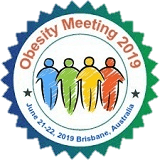
Dave Letele
Buttabean Motivation, New Zealand
Title: How one man’s journey has resulted in a movement that has helped many Maori and Pacific regain their health and their lives
Biography
Biography: Dave Letele
Abstract
Buttabean Motivation (BBM) is a health and wellbeing movement that was inspired by Dave Letele’s own health journey. Dave’s journey regaining his health back was not easy, nor is it very common amongst Maori and Pacific individuals who are part of the growing obesity statistics. New Zealand is currently ranked 3rd in terms of obesity rates with 1.5 million individuals being classed as obese. In 2017 the total Maori population was thought to be 734,200 whilst the Pacific population was thought to be 295,941 (Statistics New Zealand, 2017; Pasifika Futures, 2017) in that year it was found that 67% of Pacific and 47% of Maori adults were obese whilst 30% of Pacific and 17% of Maori children were obese. BBM started simply by training his father in-law’s friend and posting on social media where and when training would be for others interested. These spontaneous meet ups of individuals wanting to regain their health in a safe and supportive space, has resulted in an online Facebook community with over 10,000 individuals and now, 24 scheduled boot camps across West and South Auckland that are free. BBM has grown from just a bootcamp to a 12 week The BBM Ward programme is a 12-week health and lifestyle programe which Dave runs for 20 participants at a time. Individuals who are successful in their application for the BBM Ward are provided with: BBM nutritional guideline, pre and post health testing-body scans, blood pressure and insulin level checks, 12 week training-3 minimum coached training sessions a week and mentoring. All of this is free for the participants. From the first BBM ward the results showed that participants’ lipids panels were lowered into healthy ranges and 50% of the high risk individuals improved their fasting insulin scores. All four aspects of the mental health testing (anxiety, depression, Harvard happiness and Worksafe stress) improved. The greatest results were: Hip to waist ratio improved by 22% and the body fat percentage on average pre-program was 47.04% and post program the average was 39.58%. Participants in the first ward lost a combined weight of 420 kgs.

